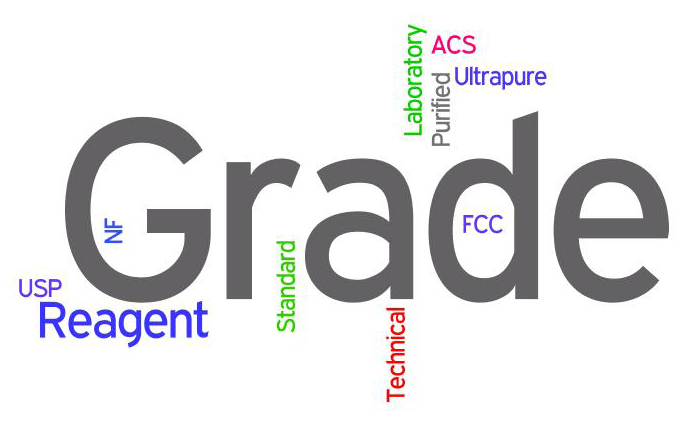An extensive number of chemicals are regularly used for laboratory applications. Purchase of these chemicals often requires specific knowledge about the chemicals in question, including information about their use and their characteristics. This is not something that should be undertaken lightly, as many of these chemicals can be hazardous in one way or another.
Depending on where the chemicals are purchased, they may be listed by their technical name or their common name. The chemical name defines exactly what chemical compound is included, based on its contents, while the common name may be how the chemical is commonly referred to and used. In some cases, the common name is a trade name under which the chemical is packaged for household use.

Common names are also given to many chemicals in order to make them easier to recognize and distinguish them from other chemical compounds that sound similar. Many of these chemicals are also used in other common household or industrial applications that are not associated with the laboratory. They are being sold by reputable and licensed bulk chemical suppliers. For example, CCC Chemical Supplier offers chemicals mostly to industries in Canada.
For those who are buying chemicals for home science projects, buying a household product that contains the chemical is a much less expensive way of procuring their needed chemicals. For laboratory use, it is usually necessary to buy the actual chemical in order to ensure an appropriate level of purity.
Understanding Chemical Purity Grades
Most chemicals can be purchased in a variety of grades. These grades refer to the purity of the chemical. While there are a number of grades available, most chemicals are graded in one of the categories shown in the table below. This allows the purchaser to select an appropriate grade to match their needs. Higher levels of purity are, of course, more costly than lower grades. If no grade is mentioned for the chemical, it is assumed to be technical grade.
- Reagent Grade: Regent grade chemical is a chemistry grade and its alternative name is ACS. It has the highest purity available, meeting or exceeding standards established by the American Chemical Society for that chemical. It is Usable for all scientific and industrial applications; often required when experimenting with live plants or animals.
- Laboratory Grade: Alternative name is Lab. Laboratory grade chemicals are relatively high purity, but may contain a small amount of impurities. They are sufficiently pure for most non-biological experimentation, but not sufficiently pure for use in food, medicine, or medical testing.
- Technical Grade: Technical grade chemicals are specifically used for industrial purposes. They can contain impurities; not tested for the purity or percentage of any impurities. They’re commonly used in industrial and commercial applications. Can be used for scientific applications where a high degree of accuracy is not needed; not suitable for any food or medical uses whatsoever.
For most applications, the lowest grade of chemical which is suitable for the application is used. This means that technical-grade chemicals are used commonly in manufacturing and other industrial applications. However, for laboratory work, reagent-grade chemicals are used almost exclusively.
Many times, the actual difference between technical grade and reagent grade is minimal. Technical grade may be just as pure as reagent grade. However, it has not been tested and is not guaranteed to contain the level of purity required to qualify it as reagent grade.
